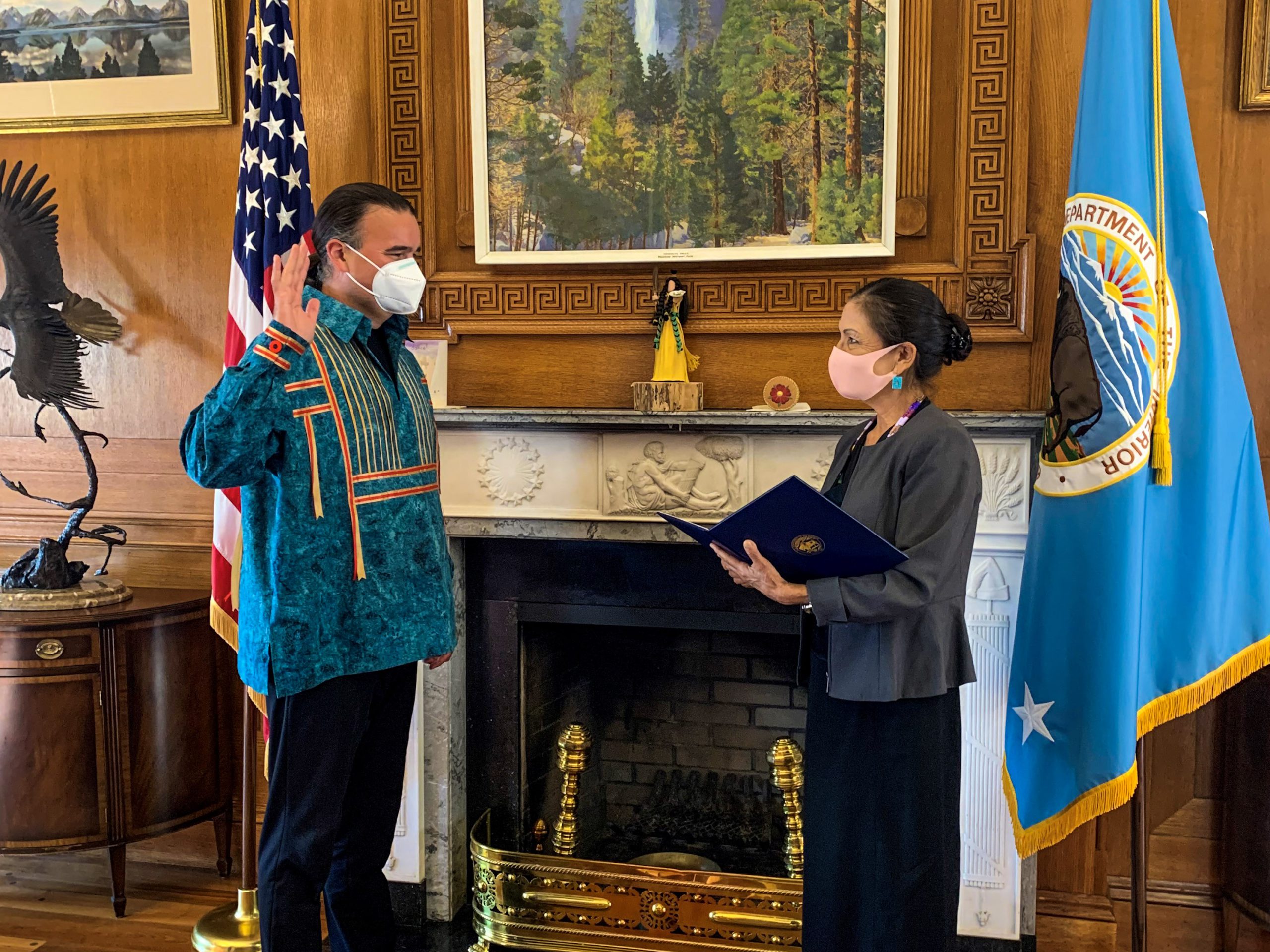Indianz.Com > News > Gabe Galanda: Biden administration takes a stand on Indian civil rights

In Historic Statement, BIA Pledges to Safeguard Indigenous Individuals’ Rights
Tuesday, January 25, 2022
This post originally appeared on the blog of the Galanda Broadman law firm.
A weekend USA Today news feature regarding the United States’ recent intercession in the Nooksack housing rights calamity [PDF] includes the following historic statement from the Bureau of Indian Affairs:
The federal government must protect the rights of individuals under federal law, including the Indian Civil Rights Act… BIA respects tribal sovereignty and supports tribal self-determination. Accordingly, we seek to work closely with our tribal partners to safeguard the rights of both tribes and individuals.
The BIA’s statement marks the second time the Biden administration has professed a commitment to protecting Indigenous individuals’ human rights from violation by Tribal governments, and a break from modern administrations that focused almost exclusively on supporting Tribal self-determination rights.
USA Today also highlights HUD Secretary Marcia Fudge’s October statement encouraging four Oklahoma tribes to accept descendants of Freedmen who once had been enslaved by the tribes. Secretary Fudge consulted with Interior before making that statement. Neither statement would have been issued without the guidance and support of Interior Secretary Deb Haaland or Assistant Secretary—Indian Affairs Bryan Newland. Indigenous representation does matter. Both the BIA and HUD statements represent historic commitments by the United States to protect Indigenous individuals from domestic human rights abuse by Tribal governments. Both statements reflect the Trustee’s common-law moral trust responsibility to Tribal citizens and descendants. Both statements recognize that in the context of Indigenous human rights, Tribal sovereignty and self-determination are not absolute. As explained by USA Today:@USATODAY joins @nytimes & @seattletimes in spotlighting the horrific local Indigenous human rights abuse suffered by @nooksack306:
— Gabe Galanda, Indigenous Rights Lawyer (@NDNlawyer) January 22, 2022
"Native American tribe's eviction plan raises civil rights concerns. Should US government intervene?"https://t.co/6XwxEA33Xj @NCAI1944 pic.twitter.com/5CwHsMaKH8
Galanda, a Seattle lawyer and member of the Round Valley Indian Tribes of California, said earlier Supreme Court decisions call for federal intervention under a “moral trust responsibility.”
“The tension lies between tribal self-determination and Indigenous human rights protection in the form of federal diplomatic intercession,” he said. “I think there have to be scenarios in which the Indigenous human rights violation is so atrocious and so threatening to an Indigenous community’s existence that the (U.S. government) must exercise its moral trust responsibility.”
I wholeheartedly applaud the Biden administration, particularly Secretary Haaland and ASIA Newland, for boldly professing a commitment to safeguard Indigenous individuals’ human rights.
Gabe Galanda is an Indigenous rights attorney and the managing lawyer at Galanda Broadman in Seattle. He belongs to the Round Valley Indian Tribes of California, descending from the Nomlaki and Concow Peoples.
Search
Filed Under
Tags
More Headlines
Native America Calling: Safeguards on Artificial Intelligence
NAFOA: 5 Things You Need to Know this Week
Chuck Hoskin: Cherokee Nation takes the lead for our environment
Native America Calling: Earth Day assessment for Native peoples
Cronkite News: Gathering addresses ‘epidemic’ among Native people
VIDEO: Cody Desautel on tribes and federal forest management
AUDIO: Legislative Hearing on Discussion Draft of Forest Management Bill
Native America Calling: Remembering the 1974 Navajo border town murders
Native America Calling: Can the right approach close the Native immunization gap?
Cronkite News: Long COVID cases remain high in Arizona
Native America Calling: Eyes in the sky for development, public safety, and recreation
Native America Calling: Three new films offer diverse views of Native life
NAFOA: 5 Things You Need to Know this Week
Chuck Hoskin: Cherokee Nation works toward cure for arthritis
Native America Calling: Protecting young people from the down sides of social media
More Headlines
NAFOA: 5 Things You Need to Know this Week
Chuck Hoskin: Cherokee Nation takes the lead for our environment
Native America Calling: Earth Day assessment for Native peoples
Cronkite News: Gathering addresses ‘epidemic’ among Native people
VIDEO: Cody Desautel on tribes and federal forest management
AUDIO: Legislative Hearing on Discussion Draft of Forest Management Bill
Native America Calling: Remembering the 1974 Navajo border town murders
Native America Calling: Can the right approach close the Native immunization gap?
Cronkite News: Long COVID cases remain high in Arizona
Native America Calling: Eyes in the sky for development, public safety, and recreation
Native America Calling: Three new films offer diverse views of Native life
NAFOA: 5 Things You Need to Know this Week
Chuck Hoskin: Cherokee Nation works toward cure for arthritis
Native America Calling: Protecting young people from the down sides of social media
More Headlines